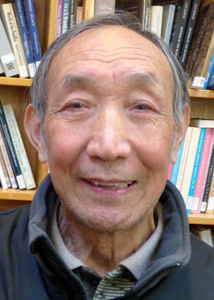Name: Thupten
(Alias: Yes)
Gender: Male
Interview Age: 74
Date of Birth: 1940
Birthplace: Lhasa, Utsang, Tibet
Year Left Tibet: 1959
Profession: Monk
Monk/Nun: Previously
Political Prisoner: No

Interview No.: 29C
Date: 2014-11-15
Language: Tibetan
Location: Seattle, Washington, United States
Categories: Culture and History
Keywords: childhood memories, children's games, Chinese army -- invasion by , clothing/weaving, escape experiences, March 10th Uprising, monastic life, pilgrimage, taxes, Utsang
Summary:
Thupten was born in Lhasa in 1940. His farming family used to cultivate crops, but migrated to Lhasa when they were unable to pay taxes to the local chieftains. Thupten explains the regular tax in the form of grains and the wulak or labor tax that people had to perform. The imposition of taxes adversely affected the lives of some farmers if they were unable to pay and had to then pay interest as well. Thupten describes the games he played as a child and expresses his desire to go to school.
Thupten's parents began weaving carpets and pillows after moving to Lhasa. He describes how carpets were hand woven, where the materials came from and how the designs were copied from a sample. Thupten recalls his induction into monkhood at Sera Monastery when he was 9 years old and his excitement at becoming a monk so that he could finally get an education.
Thupten talks about his own experience of being a monk and touring various places with his teacher on pilgrimage. He gives us an account of the Chinese presence in Lhasa in 1959. Thupten was one of over 500 monks of Sera Monastery who went to the Potala Palace to fetch guns. He recounts being fired upon by Chinese soldiers, fleeing from his monastery and finally making the decision to leave the country. During his 3-month escape on foot, he encountered immense hardships along the way to Assam in India.
Interview Team:
- Marcella Adamski (Interviewer)
- Tony Sondag (Videographer)
- Khenrab Palden (Interpreter)

